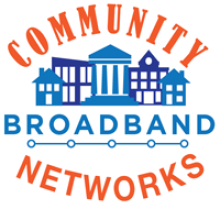New Year, Same Lame Cable and DSL Monopolies
It's a new year, but most of us are still stuck with the same old DSL and cable monopolies. Though many communities have built their own networks to create competition and numerous other benefits, nearly half of the 50 states have enacted legislation to make it harder for communities to build their own networks.
Fortunately, this practice has increasingly come under scrutiny. Unfortunately, we expect to see massive cable and telephone corporations use their unrivaled lobbying power to pass more laws in 2012 like the North Carolina law pushed by Time Warner Cable to essentially stop new community broadband networks.
The FCC's National Broadband Plan calls for all local governments to be free of state barriers (created by big cable and phone companies trying to limit competition). Recommendation 8.19: Congress should make clear that Tribal, state, regional and local governments can build broadband networks.
But modern day railroad barons like Time Warner Cable, AT&T, etc., have a stranglehold on a Congress that depends on their campaign contributions and a national capital built on the lobbying largesse of dominant industries that want to throttle any threats to their businesses. (Hat tip to the Rootstrikers that are trying to fix that mess.)
We occasionally put together a list of notable achievements of these few companies that dominate access to the Internet across the United States. The last one is available here.
 As you read this, remember that the FCC's National Broadband Plan largely places the future of Internet access in the hands of these corporations.
As you read this, remember that the FCC's National Broadband Plan largely places the future of Internet access in the hands of these corporations.
 As you read this, remember that the FCC's National Broadband Plan largely places the future of Internet access in the hands of these corporations.
As you read this, remember that the FCC's National Broadband Plan largely places the future of Internet access in the hands of these corporations.


